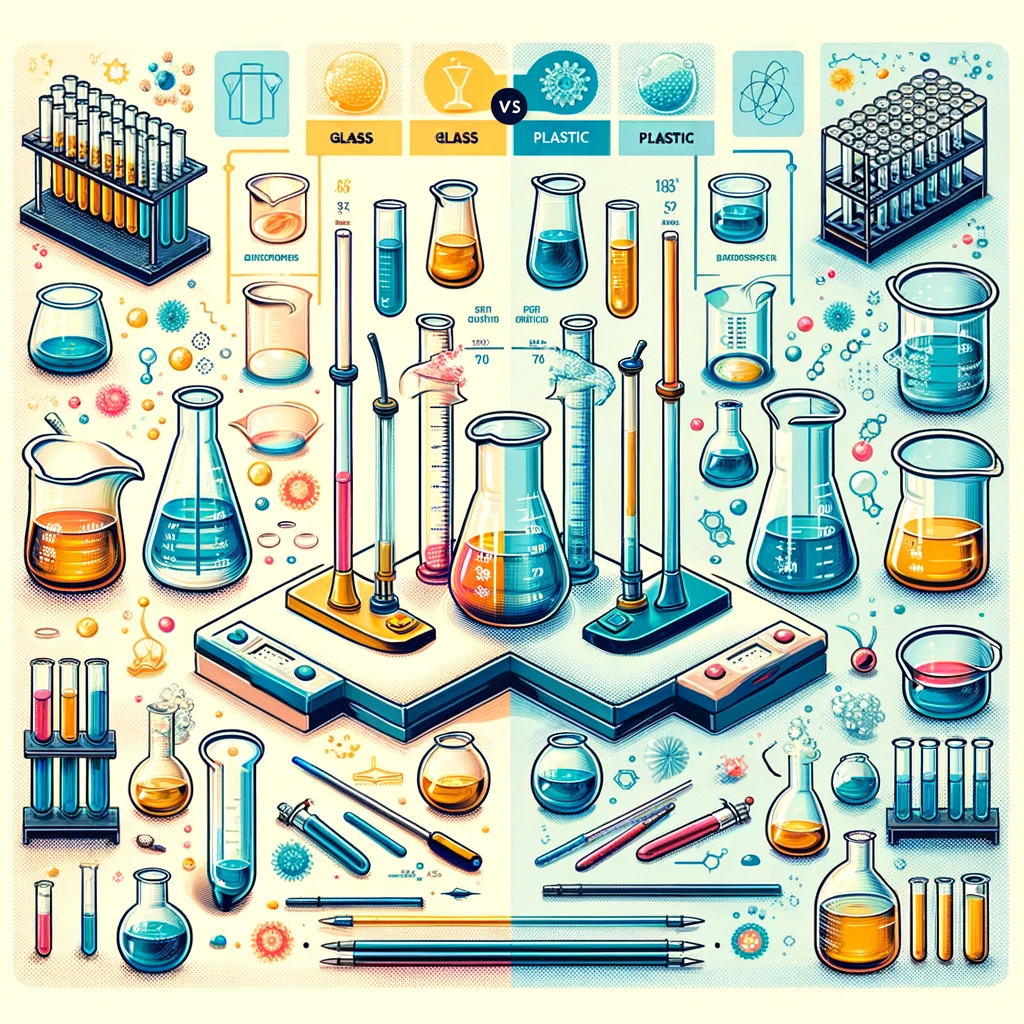Introduction to Beaker Materials
When conducting experiments, whether in a professional laboratory or at home, selecting the right equipment is crucial. One common dilemma is choosing between glass and plastic beakers. Both materials offer distinct advantages and disadvantages, and understanding these can help you make an informed decision based on your specific experimental needs.
Advantages
-
Heat Resistance: Glass, especially borosilicate, is renowned for its ability to withstand high temperatures. This makes it ideal for experiments involving heat.
-
Chemical Stability: Glass is non-reactive and won't leach chemicals into your experiments, ensuring purity and accuracy in your results.
-
Visibility: The transparency of glass allows for easy monitoring of the contents and reactions.
Considerations
-
Fragility: Glass is prone to breaking if dropped or mishandled, posing a safety risk.
-
Weight and Cost: Glass beakers are heavier and generally more expensive than their plastic counterparts.
-
Graduation Marks: Some glass beakers have narrow graduation marks, which can be challenging to read accurately.

Plastic Beakers: Convenience and Affordability
Advantages
-
Durability: Plastic beakers, typically made from polypropylene or TPX, are nearly unbreakable, making them a safer option in certain environments.
-
Lightweight and Economical: These beakers are easier to handle and more cost-effective, especially for bulk purchases.
-
Chemical Resistance: Plastic beakers can resist many chemicals, although not as broadly as glass.
Considerations
-
Chemical Interaction: Certain substances can react with plastic, potentially leading to contamination.
-
Heat Sensitivity: Plastic beakers cannot withstand high temperatures, limiting their use in heat-related experiments.

Eisco Labs offers a range of high-quality glass and plastic beakers, catering to diverse experimental needs.
Features
-
Variety of Sizes and Styles: Whether you need small beakers for precise measurements or large ones for mixing substances, Eisco Labs has you covered.
-
Clear Graduations: Accurate measurements are made easier with well-marked graduations.
-
Affordability: These beakers are priced to fit both professional and home budgets.
Applications
-
Laboratory Experiments: Ideal for chemical reactions, heating substances, and more.
-
Educational Use: Perfect for classroom demonstrations and student experiments.
-
Home Projects: From cooking and baking to DIY solutions, these beakers are versatile.
Enhancing Experimentation with the Right Tools
Why Material Matters
The material of your beaker can significantly impact the outcome and safety of your experiments. Understanding the chemical and physical properties of glass and plastic is essential to avoid accidental reactions, breakages, or incorrect measurements.
Safety First
-
Glass Beakers: Handle with care to avoid breakage. Use heat-resistant gloves when dealing with high temperatures.
-
Plastic Beakers: Ideal for educational settings where safety is a priority. Remember, they are not suitable for flammable substances or high-heat applications.
Cost vs. Durability
-
Budget Considerations: If cost is a concern, plastic beakers offer an economical solution. However, investing in glass beakers can be cost-effective in the long run due to their durability and wide range of uses.
-
Longevity: Glass beakers can last for years with proper care, while plastic beakers may need more frequent replacement.
Environmental Impact
Consider the environmental aspect of your choice. Glass beakers are more sustainable and can be recycled, whereas plastic, though initially cheaper, contributes to plastic waste.
Tailoring to Your Needs
Specialized Experiments
Certain experiments require specific properties of beakers. For example, if you're working with UV-sensitive substances, glass is preferable due to its transparency and non-reactivity.
Everyday Applications
For general use, such as mixing solutions or simple chemical reactions at room temperature, plastic beakers are more than sufficient.
Conclusion: Balancing Needs and Resources
When deciding between glass and plastic beakers, consider the nature of your experiments, your budget, safety requirements, and environmental impact. By understanding the strengths and limitations of each material, you can make an informed decision that enhances the efficiency and safety of your experimental processes. Whether you choose glass, plastic, or a combination of both, Eisco Labs provides quality options to meet your diverse experimental needs.


